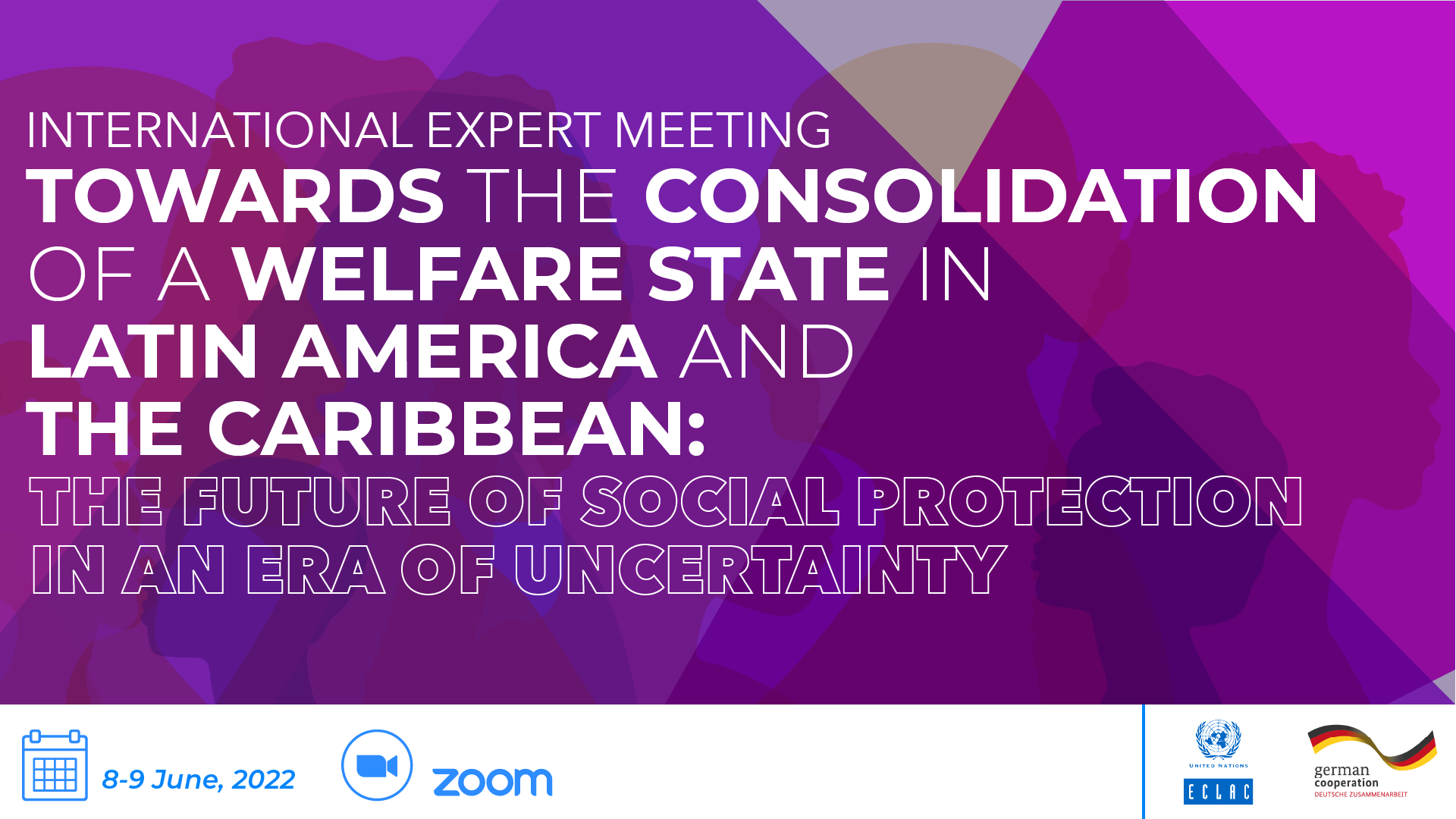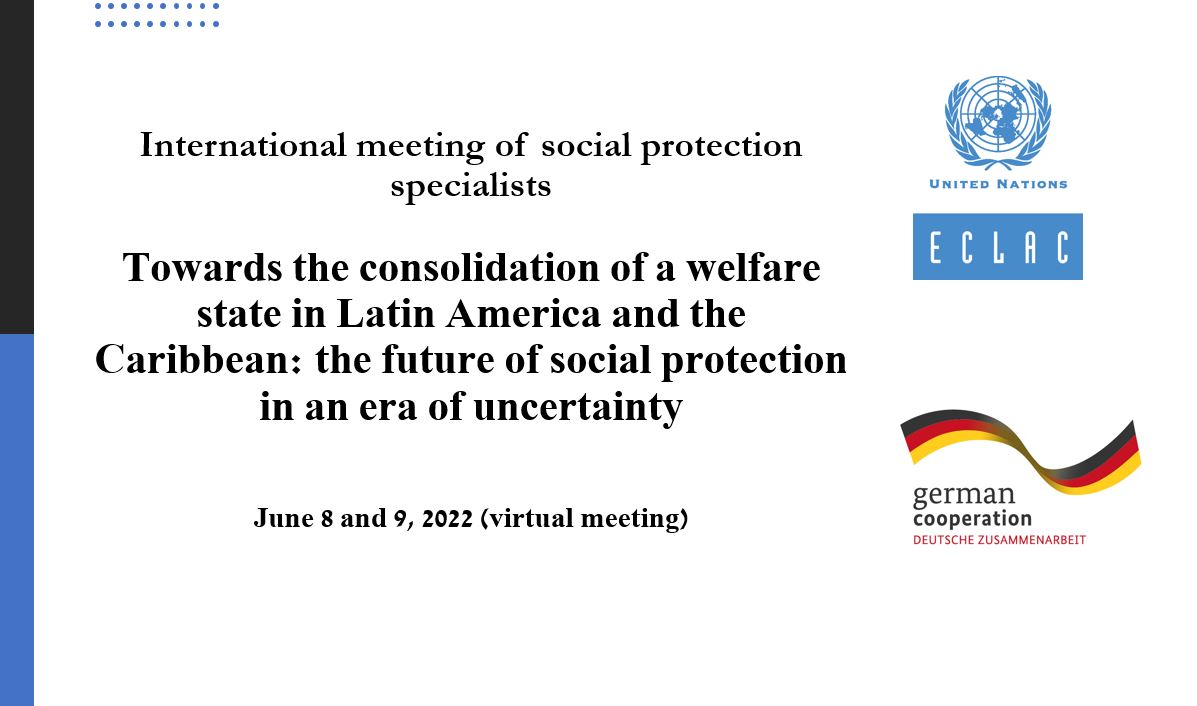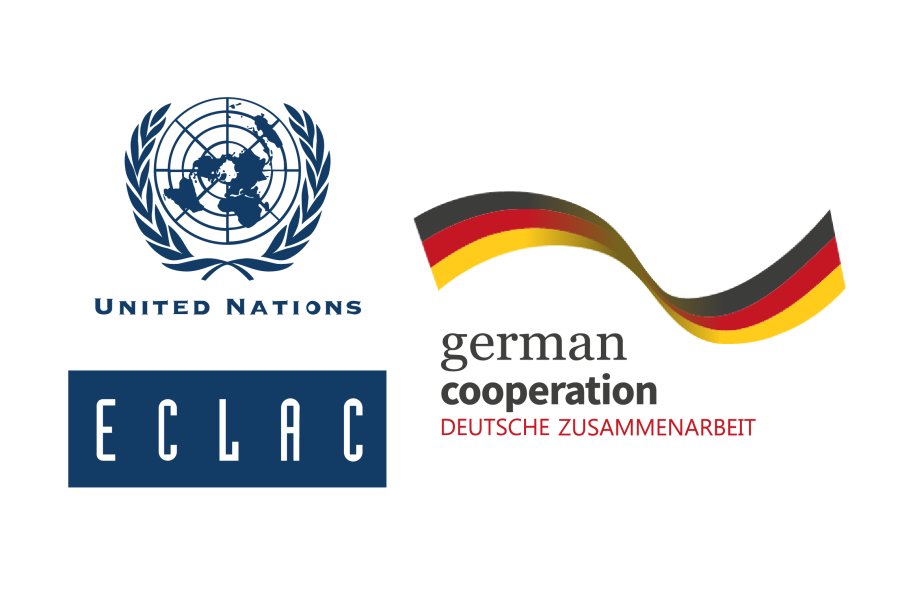Strengthening Social Protection Systems in the Framework of a Welfare State is an Urgent Task in Latin America and the Caribbean for Tackling Multiple Crises
Work area(s)
Authorities and specialists are participating this Wednesday and Thursday, June 8 and 9, in a virtual international meeting organized by ECLAC and GIZ in the framework of a project financed by the German Federal Ministry for Economic Cooperation and Development (BMZ).

Strengthening social protection systems in the framework of a welfare state is an urgent task in Latin America and the Caribbean amid the prolonged COVID-19 crisis, the economic and social repercussions of the war in Ukraine and the widespread vulnerability of the region’s countries to ongoing emergencies and disasters, according to the speakers at the opening session of the International Expert Meeting “Towards the consolidation of a welfare state in Latin America and the Caribbean: the future of social protection in an era of uncertainty”, which is taking place virtually this Wednesday, June 8 and Thursday, June 9.
Participating in the event’s inauguration were Alberto Arenas de Mesa, Director of the Social Development Division of the Economic Commission for Latin America and the Caribbean (ECLAC), and Manfred Häbig, Principal Advisor of the Cooperation Program ECLAC-BMZ/giz. Subsequent to that, Arenas gave a keynote speech entitled “The future of social protection in the face of the protracted crisis in Latin America: the urgent need to move towards universal, comprehensive, resilient and sustainable systems in the framework of welfare states.”
“The COVID-19 pandemic demonstrated the centrality of social protection for addressing the health, economic and social effects of crises. Our region has been the most affected with regard to the number of deaths, and it is one of the most impacted in economic and social terms. This is not coincidental and is due to long-standing structural factors, including inequality in its diverse manifestations and the weakness of social protection systems,” the ECLAC official emphasized.
Alberto Arenas sustained that “strengthening social protection systems in the framework of a welfare state in the region is an urgent task. It is critical to safeguard and not imperil its construction and social investment. Providing universal levels of protection amid this uncertainty, with solidarity and equality, is one of the greatest tasks of our time. This will allow for moving towards development with sustainability and equality, distributing the benefits of technological progress and economic development, and preserving and improving our present and future coexistence, under a social compact and a fiscal contract that is forged collectively and where all of us are protected regardless of our position in the labor market.”
Cooperation and multilateralism are more important than ever at this time in which the role of public policy and of the State are at the center of a coordinated response to global challenges, the Director of ECLAC’s Social Development Division stated. “Looking ahead,” he said, “it will be necessary to promote a different kind of social protection that guarantees the exercise of rights, incorporates technological and digital tools into its administration, addresses social inequalities, and fosters labor inclusion with decent work in the framework of a care society. This is about seizing the historic opportunity to move towards sustainable development with equality.”
Meanwhile, Manfred Häbig, Principal Advisor of the Cooperation Program ECLAC-BMZ/giz, emphasized that the most vulnerable population “tends to pay the highest price” in contexts of structural changes such as those we are living through. “Here, social policy and social protection policy is key and indispensable – for ethical principles, for justice and social peace, and so our countries may be governable.”
“Today, while still grappling with the economic and social effects of a pandemic, another war in Europe makes us see that we are living in an era that ECLAC described as a ‘change of era.’ The direct, and especially indirect, consequences of the war in Ukraine are already being felt, and they will soon be felt more, also here, in Latin America. In this phase of geopolitical reorganization, the region’s countries face ever greater challenges for generating and ensuring well-being and social peace,” he added. He also indicated that “gatherings like this one help to discover suitable solutions so that institutions and public policies can function in a timely, sustainable and, above all, effective and efficient way,” and he highlighted that “in our strategic partnership with ECLAC, our donor – the Federal Ministry for Economic Cooperation and Development (BMZ) – and those of us at GIZ, as its agency of implementation, hope to be able to contribute to enriching the debate on the future of social protection in the region.”
During the event, the project document entitled Two years of COVID-19 pandemic in Latin America and the Caribbean: Reflections for moving towards universal, comprehensive, sustainable and resilient health care and social protection systems was presented.
This report analyzes the evolution of the pandemic, revealing how the region’s inequalities have deepened and how the health care and social protection systems’ limitations hindered the management and control of the health crisis. It also confirms the urgency of reforming health care systems to move towards universality, comprehensiveness and sustainability, in coordination with social protection policies.
The meeting is among the activities corresponding to the project "Recover better – Overcoming the COVID-19 pandemic consequences in Latin America and the Caribbean,” which is being carried out by ECLAC in conjunction with Deutsche Gesellschaft für Internationale Zusammenarbeit (GIZ) and is financed by Germany’s BMZ. It seeks to contribute to a transformative reactivation that would help to overcome the COVID-19 crisis in the region and, in terms of its social component, to strengthen universal, comprehensive and sustainable social protection systems that foster social and labor inclusion.
The event is also directly linked to the work of the Regional Conference on Social Development in Latin America and the Caribbean. In the context of this subsidiary body of ECLAC, in 2019, authorities from the region approved the Regional Agenda for Inclusive Social Development, a technical-political instrument that seeks to support implementation of the social dimension of the 2030 Agenda and has as the first of its four pillars the goal of strengthening universal, comprehensive and sustainable social protection systems.
Related event

International Expert Meeting "Towards the consolidation of a welfare state in Latin America and the Caribbean: the future of social protection in an era of uncertainty"
This virtual meeting aims to provide a space for reflection on the main challenges to move towards universal, comprehensive, sustainable and resilient social protection systems. At a time when the…
Type
Country(ies)
- Latin America and the Caribbean
Related project(s)
Contact
Public Information Unit
- prensa@cepal.org
- (56 2) 2210 2040


